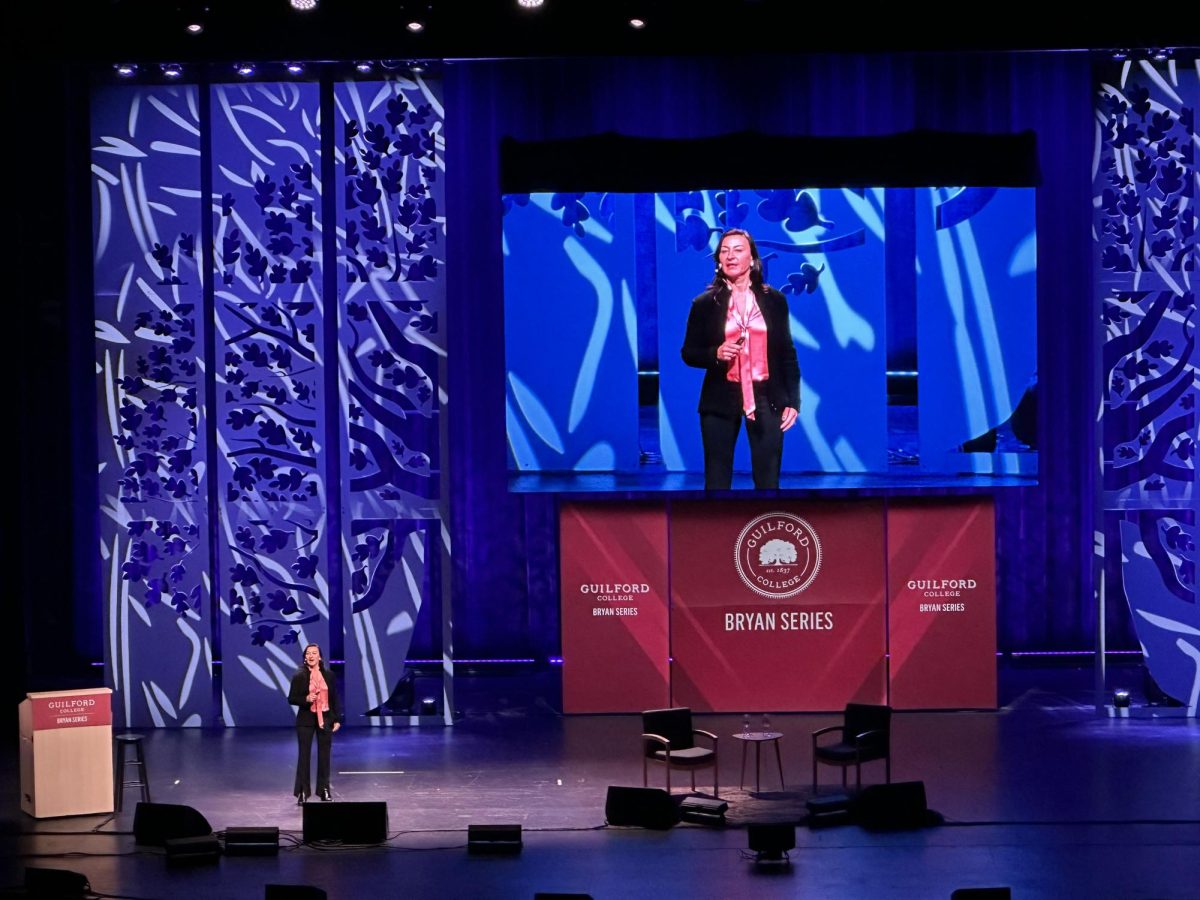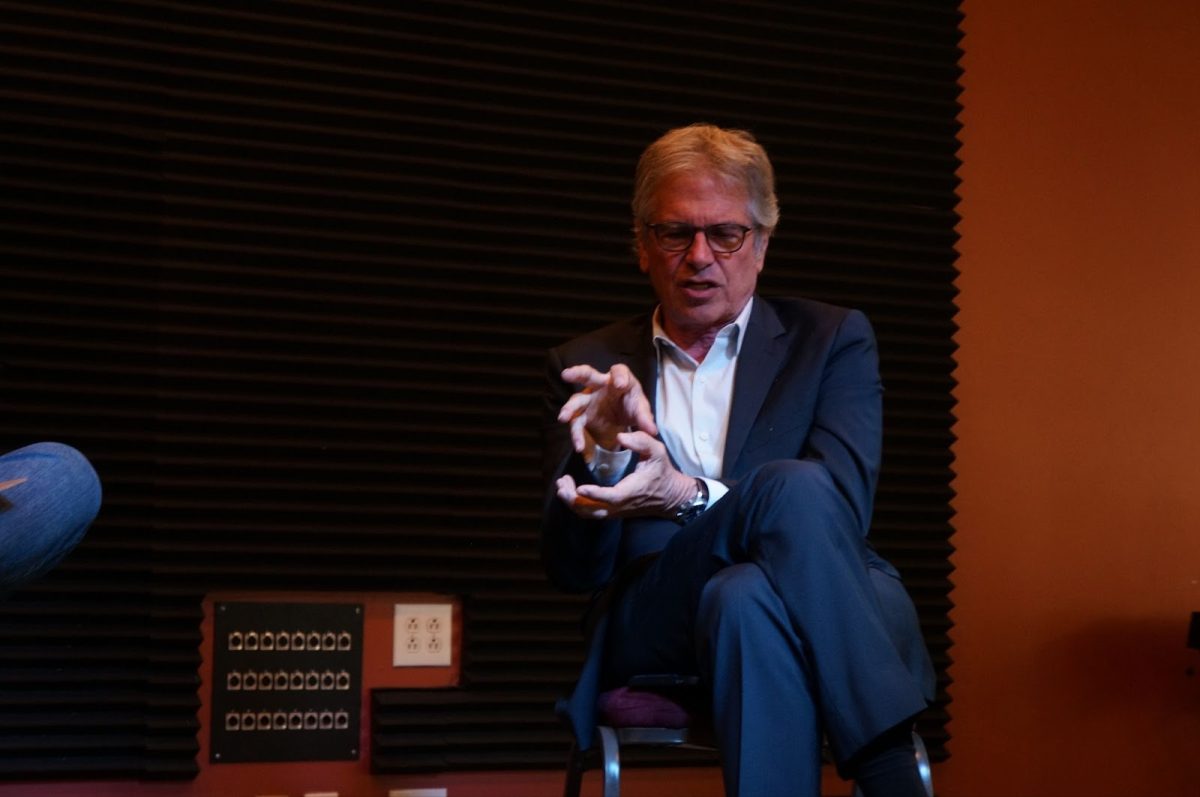“We know where your money goes.”
“Nothing about us, without us, is for us.”
“Pop the administrative bloat.”
Outside of a board of trustees meeting, students gathered, silently holding signs with these words on Feb. 22 at the Community Center.
The Feb. 20 “Town Hall Meeting” with the board intended to spark open and honest dialogue between students and trustees, yet feelings of frustration and disappointment lingered. Many felt the meeting’s format did not actually allow for candid communication between trustees and students.
In order to make their voices heard more directly, members of Students Allied Against Privilege and Supremacy and other interested community members demonstrated outside of the trustees’ meeting to finalize Guilford College’s budget for the upcoming year.
The demonstration’s main message? Faculty pay concerns must be tackled. Guilford’s professor salaries should not be dead last compared to peer institutions while administration salaries “bloat.”
Senior Daniel Raeder, one of the demonstration’s organizers, explained the bloat as “a disproportionate amount of money at one point of the pay scale compared to another.”
Students were unrolling signs as Carole Bruce, trustee and chair of the presidential search committee, spoke of faculty salaries, just feet away.
“The timing was impeccable,” said Aaron Fetrow, dean of students and vice president for student affairs.
Students stood with pieces of paper indicating the difference between the faculty and staff average salary and the top three administrative positions’ average salary. Each foot of paper represented $10,000, resulting in one 7-foot piece and one 21-foot piece.
“Initially, I went to support and encourage our students in their social activism,” said Diya Abdo, associate professor of English and chair of the English department.
“But I ended up being deeply
inspired and moved by their ethos, their desire to fight for our core values in a way that should teach us all, but especially the administration, something about the true spirit of Guilford College. That day I remembered — if I ever needed reminding — why I love this place so much.”
At its peak, the group was about 20 students, but it dwindled toward the end of the meeting.
“I think our biggest difficulty was that the meeting was so long, so some of our original protestors had to leave,” said junior Charlotte Lippincott.
During a break in the meeting, some trustees came outside to speak with students and expressed appreciation for students’ exercise of their voice.
A few senior administrators reiterated that there is not enough money to pay employees more.
Kent Chabotar, president of Guilford and professor of political science, spoke with demonstrators after the meeting and said, “We agree to disagree.”
Raeder thought this rationale to be insufficient.
“When we agree to disagree, you’re disagreeing and you’re influencing the decisions,” said Raeder.
Fetrow discussed “ugly trade-offs” when asked about the unequal pay and a 3 percent rise in tuition.
“Do we spend the money on life safety issues in Bryan (Hall) … or do we do raises for low-paid staff?” said Fetrow.
Has the idea of cutting administrative salaries been part of the ongoing budget conversations? According to Fetrow, the answer is no.
Different reasons have been given to justify why Guilford pays faculty less than its peer institutions, like the College’s having a smaller endowment or more faculty to pay. Others suggest that the College offers better faculty benefits or that the faculty have a lighter workload than at peer colleges.
These reasons were proven false, however, in the faculty report published in August 2013. According to the report, Guilford’s endowment is larger than eight percent of its peer institutions, and there is no strong correlation between the number of full-time faculty and average salaries. Guilford faculty benefits are also average and the teaching load is typical compared to fellow institutions.
“I am mad and demoralized,” said Hiroko Hirakawa, associate professor of foreign languages. “I feel helpless and don’t know what to do, but I also know something has to be done.”
Raeder, among others, brought up the neglect of Guilford’s core values.
“The issue at hand is our core values have come to mean nothing,” said Raeder. “If we aren’t equitably paying the people who work here, then that isn’t living up to equality. If we have hugely disproportionate people of non-color compared to people of color being hired and retained at this school, then that’s not diversity.”
[photomosaic nggid=209]












